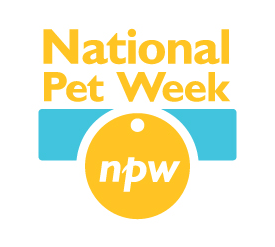
National Pet Week, coming up May 6 through 12, is just another week when we get to love on our pets and blast our social media accounts with adorable pictures. We as pet owners love and spoil our pets, and all strive to gear their lifestyle toward longevity and love. Here’s a guide for not only a week’s worth of caring for our pets, but for a lifetime. When you’re looking to become a pet owner (or even if it happened unexpectedly), be sure you understand the responsibilities and commitment it requires to care for an animal. This correlates to a significant amount of time, education and money.
Be aware of the time you will need to invest into your pet. Having a pet that understands boundaries and manners is a vital part of training your dog. You will need time for potty training and teaching your pet simple commands; success doesn’t happen overnight. Being able to socialize your dog is something that also takes time, and it is recommended that you start early. New environments and interactions become less scary when you expose them at an early age. You will also need to spend time exercising your pets. Reports show that a staggering 53 percent of dogs and 58 percent of cats in America are obese. This can directly correlate to our own lifestyles as well. Making time to exercise by walking briskly with your pets for 15 to 30 minutes per day will significantly increase your pet’s life span.
 Another aspect of caring for animals is that you need to be aware and educated about them. This doesn’t mean you need to become an expert, but it is your responsibility to know about tendencies of your specific breed of animal. If your dog or cat is a breed of special concern, meaning they are more prone to allergies or medical problems, research what you can do to help or readily prevent these situations. This will help you to be aware of their behavior and establish what is normal and what is cause for concern.
Another aspect of caring for animals is that you need to be aware and educated about them. This doesn’t mean you need to become an expert, but it is your responsibility to know about tendencies of your specific breed of animal. If your dog or cat is a breed of special concern, meaning they are more prone to allergies or medical problems, research what you can do to help or readily prevent these situations. This will help you to be aware of their behavior and establish what is normal and what is cause for concern.
Nutrition requirements are another factor to consider regarding your pets. Dogs, like people, are individuals. Dog food isn’t always a one-size-fits-all, so talk to your vet and a nutrition consultant to see what avenue you need to explore in for your pet’s nutritional needs.
A final piece of advice on caring for animals is to always have a plan for accidents/emergencies. You can never fully see it coming, but when an accident happens it throws us into a frenzy. A proactive step to have in place is a pet emergency fund. Unfortunately, accidents aren’t cheap so it is best to have money set up just in case you may need it.
Finally, we, as owners, tend not to go to the vet unless there’s a problem at hand. Schedule routine vet checkups as well as a form of preventative measure. After all, we want to do anything in our power to help our pets.













